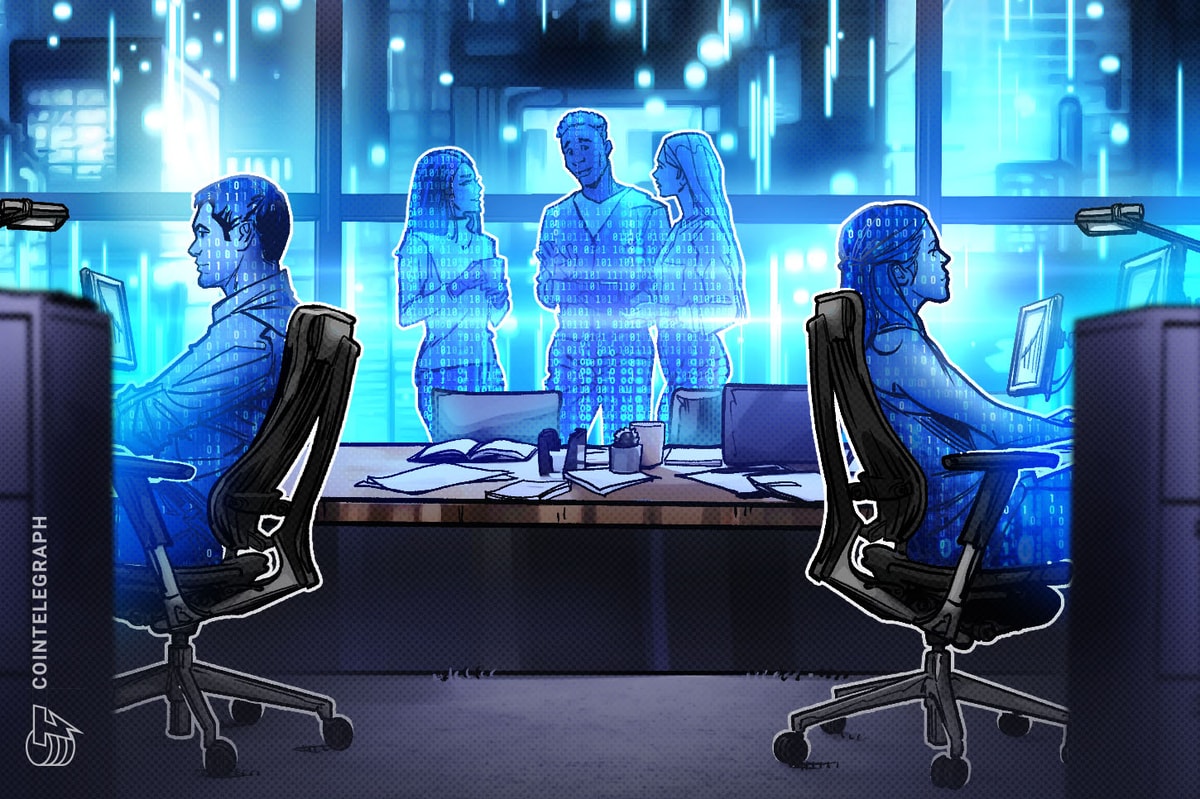The age-old question of “what happens after we die” is one humanity has grappled with for millennia. Religions, philosophers and thought leaders have
The age-old question of “what happens after we die” is one humanity has grappled with for millennia. Religions, philosophers and thought leaders have put forth theories about each person’s fate beyond life on earth. Until now, no factual, science-based conclusion has provided a satisfying answer.
Psychologists have understood that the fear of death — or the realization of mortality — is a major motivator of human action. Developments such as cloning and creating virtual worlds, which were previously science fiction, have come to reality, perhaps as another scramble to answer this question — or even defeat death.
Now, in the age of the metaverse, humans are the architects of a new digital world and, therefore, a new digital life. In the Web3 space, the metaverse has garnered much attention from outside investment and increased participation from legacy companies. The metaverse sector will have an estimated value of $5 trillion by 2030.
Many believe that the metaverse will reshape how social life is structured.
This new genesis of digital life naturally brings out the same timeless questions — with a twist. If life is reinvented in digital reality, will death also be different? Specifically, what happens after we die in the metaverse as humans and avatars?
What happens when we die digitally?
The existential question of what happens after we die remains unanswerable regarding our souls’ final or next destination. However, cultures worldwide have different ways of handling death-related ceremonies, which is the human experience of deciding what happens to our bodies after death.
As more people continue to digitize their identities, create avatars in virtual worlds and hold digital assets, the question of what happens after death reappears.
The introduction of social media was one of the earlier instances of humans having to deal with a digital identity after death.
At Facebook, for example, a user’s profile becomes “memorialized” as a “place for friends and family to gather and share memories after a person has passed away.” It also serves as a security feature to prevent any future logins.
Facebook’s parent company Meta has been actively pursuing metaverse development. Mark Zuckerberg, the company’s founder, made an explainer video for Meta’s metaverse in October 2021.
While the clip didn’t explicitly mention death, users began asking the death in the metaverse question. Shortly after, a dystopian meme circulated on social media with a quote attributed to Zuckerberg: “If you die in the metaverse, you die in real life.”
— Elon Musk (@elonmusk) October 30, 2021
Nonetheless, founders and executives of metaverse platforms are toying with the idea of death as digital reality develops.
Recent: In crypto winter, DeFi needs an overhaul to mature and grow
Frank Wilder, the co-founder of metaverse platform Wilder World, told Cointelegraph that as we build sacred places within the metaverse and create new avatar versions of ourselves, the concept of “dying” is no longer limited to the death of a physical body:
“In this digital world, we have the ability to imagine new forms of existence after death, such as the preservation of a person’s digital consciousness or the creation of a virtual memorial.”
Wilder said that honoring the “sacredness of life is a delicate exploration,” and humans will inherit various avenues to choose how they would like to honor their life.
Cemeteries in the sky
For Mariana Cabugueira, the lead architect and urban planner of Wilder World’s first digital city, Wiami, this “new dimension of reality” invites a fresh approach to preserve legacies.
Take the concept of cemeteries, for example. In her view, metaverse cemeteries will be less like graveyards and more like designated memorial spaces with capsules that hold memory and soul, created by the owner for digital rest.
“These digital capsules share how we want to be remembered and honored, tell our story, and convey the warm feeling of a soul.”
Although avatars do not age, the mind behind the avatar can supersede the digital character and deserves closure and celebration, Cabugueira said, adding, “memory-capsule cemeteries will be places for life closure, for ending our characters — a self we departed from — or a stage of life we are no longer in.”

In Wilder World, Cabugueira has a vision of how these spaces will visually take shape. She said these memorial spaces would be high-up “like cathedrals,” with symbolism tied to the sky and light.
“Remembrance is no longer just a burial but a celebration of life evolving,” she said.
Ethics of digital life after death
Digital cemeteries are only one part of what happens after a digital death. A more pressing question is: What happens to our digital assets and data?
Yat Siu,…
cointelegraph.com
